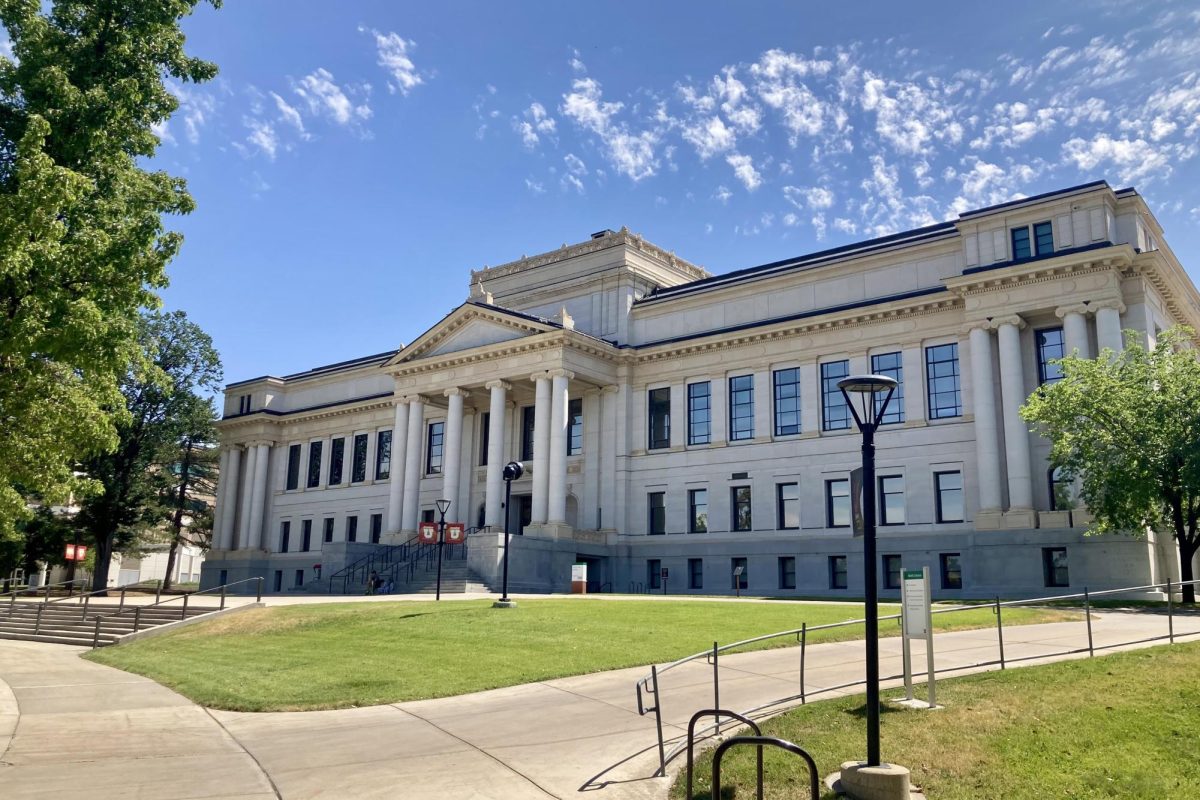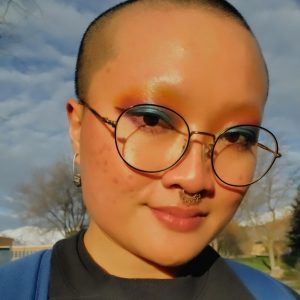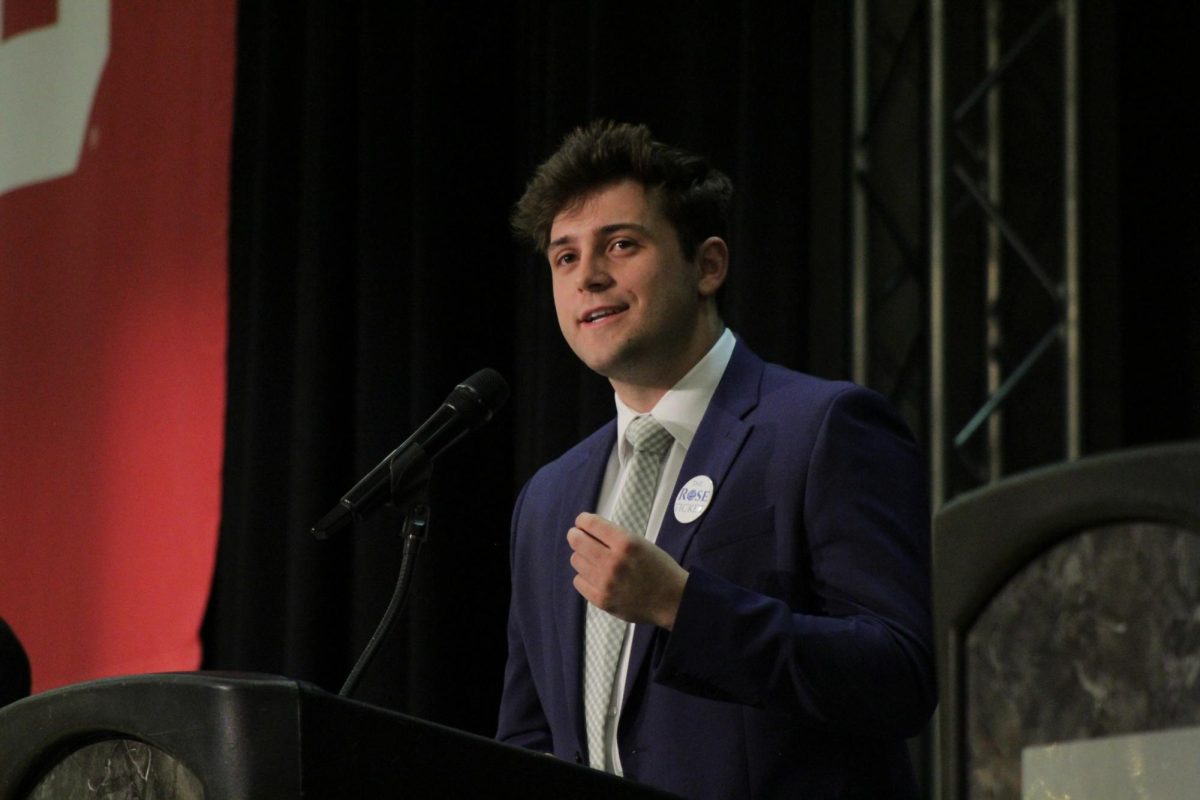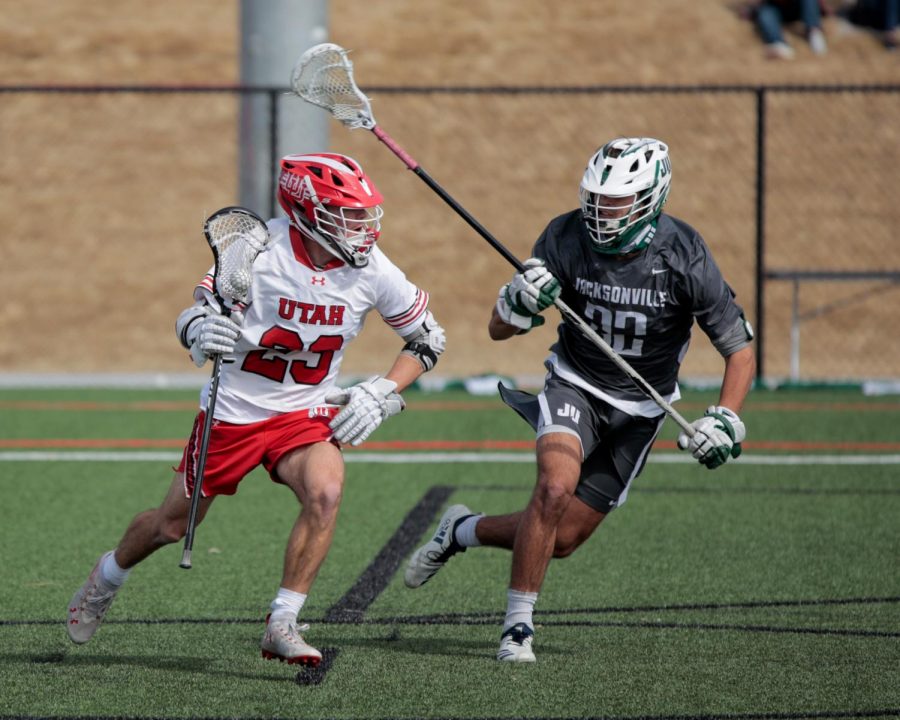Loken: Where Are the White First-Generation Scholars?
The John R. Park Building at the University of Utah campus in Salt Lake City on Saturday, July 8, 2023. (Photo by Sophie Felici | The Daily Utah Chronicle)
July 10, 2023
The First Generation Scholars program held a summer social, but curiously missing from the event was the presence of white students. I entered the space to find out why. In the process, I learned about the resources they offer to first-generation students to help lift them up and fill their academic experiences with hope. The First Generation Scholars program can help white students persist through their education and find community.
The True FGS Mission
Previously known as Beacon Scholars, the FGS office is home to dedicated mentors and staff. Linda Paternina-Serrano, the associate director, explained that the purpose of FGS is to help participating students persist. The only qualifier for the program is being a first-generation student.
FGS seeks to help students work through the unique barriers they face as the first in their families to attend college.
“This project is not about making you the best academic,” Paternina-Serrano said. “It’s about making you feel that you’re welcome to the U, that you have a space here, that you belong at the U even though we’re still minorities on campus.”
Along with games and icebreakers, the FGS summer social featured food, lots of laughter and plenty of information on lesser-known school resources and services. I tend to feel inhibited during icebreaker activities, but a piñata was the perfect way to watch people have fun and loosen up. And though I don’t qualify to apply for FGS, people enthusiastically invited me multiple times while I attended the social.
The folks at FGS truly welcome everyone, and their warmth shines through their event and interactions.
“We want to connect you with a community that is going to advocate for you in all the areas that you need to be supported in,” Paternina-Serrano said. “Because it’s not all about the challenges that you’re going to encounter in the academic part, it’s about your personal challenges.”
Lucky’s Experience
Lucky, a student using the name for both privacy and to honor her family’s naming traditions, is an FGS applicant of color. As someone who grew up surrounded by mostly non-white people, she explained the sense of community she felt with students of color compared to white students at the U. Some potential differences made friendships with people of color easier.
“I could just be myself, act like myself without having to think, ‘Oh, this person feels sorry, in a way, [for] me based on the news,’” she said.
Lucky also noted that relationships with people of color may start from a different place but can be just as powerful.
“It’s a lot easier to talk to people of color. [But] I have a friend who’s white, and she understands me a lot better than anyone else,” she said. “She’s my best friend. … If two people connect, they will connect, and if they don’t, they just go their separate ways.”
She looked back on the competition between pre-med students and how her experience in FGS changed the way she looked at community with her peers.
“It’s hard to find a person you can sit down with and talk through your possible achievements and future endeavors without making it feel like a competition between the two of you,” she said.
Her first FGS event was a success, leading to her application for the program.
“When I went to the first-gen conference that my friend invited me to, I totally did not feel like that,” Lucky said. “I was sitting at the table eating my food, and there were people giving me advice.”
Lucky expressed delighted surprise. “It worked for me,” she said. “And that threw me back. Why are you giving me advice? Really? Aren’t we competitors?”
She felt a sense of community to first-generation students specifically, saying she felt “so connected and so free and like I could search for opportunities with other people without having to compete.”
Representation
“We want First Generation Scholars to actually represent the population of our institution,” Paternina-Serrano said. “I would love for more white students to join our program, and we want to serve them.”
It’s possible the U might promote FGS more often and with more insistence if there were a greater presence of white students. Regarding this, Paternina-Serrano said, “I will say that if we will have more white students in our program, we will have more faces looking at us in trying to help us succeed in everything that we are doing.”
White first-generation students need FGS just as much as first-generation students of color, and FGS is asking for them to join their community.













